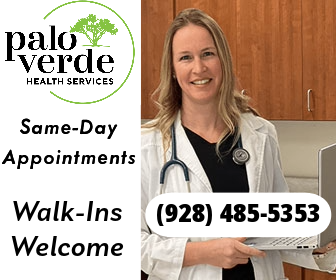Physicians undergo training to practice medicine and offer care to patients; however, their expertise extends far beyond just clinical environments. Nowadays, an increasing number of physicians are exploring non-clinical career paths that enable them to impact healthcare in diverse ways. Whether it involves influencing healthcare policies or spearheading quality improvement initiatives, there exists a spectrum of opportunities for physicians to make contributions outside the conventional clinical realm.
Influencing Healthcare Policies
Physicians can play a critical role in shaping healthcare policies by utilizing their hands-on experience in medical care. They can advocate for changes that enhance the access, affordability, and quality of care based on their insights. Public health agencies, governmental bodies, non-profit organizations, and professional associations often seek the guidance of physicians to craft and execute policies that benefit both patients and the overall healthcare system. This makes policy work and advocacy an excellent alternative career for a physician looking for a change.
Medical Writing and Journalism
Given their wealth of knowledge, physicians are well-suited for roles in medical writing and journalism. Medical writers play a role in simplifying scientific information into easily understandable formats for both healthcare professionals and the general public. Whether it entails drafting journal articles or developing educational materials for patients, physicians can leverage their expertise to contribute significantly towards disseminating health-related information.
Pharmaceutical Sector
The pharmaceutical field offers another path for doctors looking to make an impact on patient well-being. In roles like pharmaceutical regulatory affairs or drug safety officers, physicians collaborate with teams in pharmaceutical companies to ensure the safety, effectiveness, and adherence to regulations and ethical standards of medications.
Healthcare Advisory
Doctors are natural problem solvers – they diagnose conditions daily! This analytical approach makes them skilled at assessing systems and pinpointing areas for enhancement within healthcare institutions. Through positions such as healthcare consultants or advisors, physicians can directly engage with hospitals, clinics, or even government entities on projects aimed at streamlining medical processes, enhancing outcomes, and improving healthcare delivery.
Medical Teaching
Taking on the role of educator or mentor for healthcare professionals can be incredibly fulfilling for doctors exploring clinical paths. Whether it’s teaching students and residents, designing continuing medical education programs, or leading healthcare training initiatives, physicians can influence generations of healthcare providers and leave a lasting mark on the industry.
Business Ventures and Innovative Solutions
Equipped with an understanding of patient care requirements and existing gaps in the healthcare system, physicians are well-equipped to create groundbreaking solutions through entrepreneurship. Entrepreneurial doctors have the chance to lead the way in revolutionizing healthcare by starting telemedicine businesses, creating health platforms, and developing medical devices.
Healthcare Technology
In the realm of healthcare technology, physicians can blend their expertise with know-how as they take on roles like chief medical information officer or team member in charge of electronic health record systems and health apps. By using their knowledge, doctors can play a role in crafting and executing innovative technological solutions that enhance patient care outcomes.
Global Health Initiatives
For those passionate about tackling healthcare inequalities on a large scale, joining global health organizations and initiatives could be an impactful path. This involvement may entail collaborating with non-governmental organizations (NGOs), participating in medical outreach programs, or partnering with international public health agencies to combat infectious diseases, promote vaccination campaigns, or expand access to vital healthcare services in underserved areas.
Medical Research
With their experience in patient care settings, physicians possess an edge when it comes to contributing to scientific research. Engaging in research opens doors for doctors to explore treatment methods, investigate potential disease cures, and study population health trends. Through engaging in research studies or taking part in trials, doctors have the opportunity to influence the evolution of healthcare by advancing knowledge and innovations.
Conclusion
Doctors possess a range of skills that go beyond their duties of practice. By exploring career paths outside of patient care, they can apply their expertise across sectors that enhance patient well-being on a broader scale. Whether it involves shaping healthcare policies or working in areas such as pharmaceuticals, medical writing, or education, doctors hold the potential to make contributions in areas aligned with their interests. By considering these career paths, physicians can expand their horizons while making a positive impact on the future of healthcare delivery.








